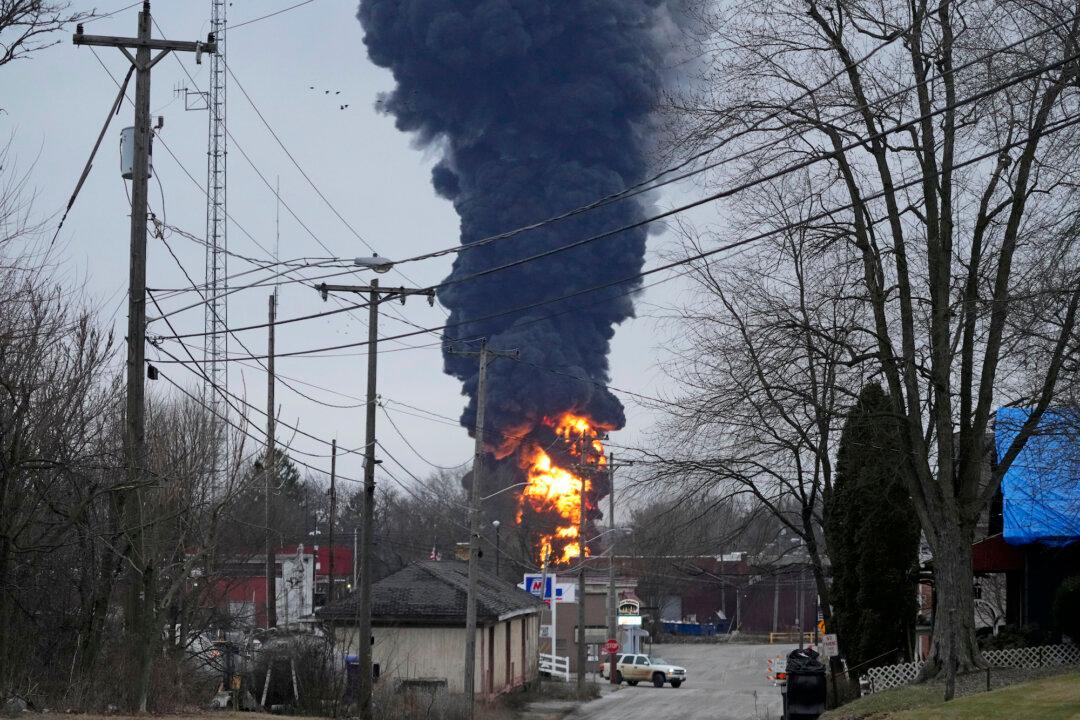Residents who live near the toxic site of the East Palestine, Ohio, train derailment have said they’ve been diagnosed with bronchitis associated with exposure to chemicals.
Melissa Blake, who lives within a mile of the train derailment site, said she was diagnosed with bronchitis after she started coughing up gray mucus and was having difficulty breathing two days after the crash. Blake told NBC News that she went to the emergency room on the day she evacuated, Feb. 3.





